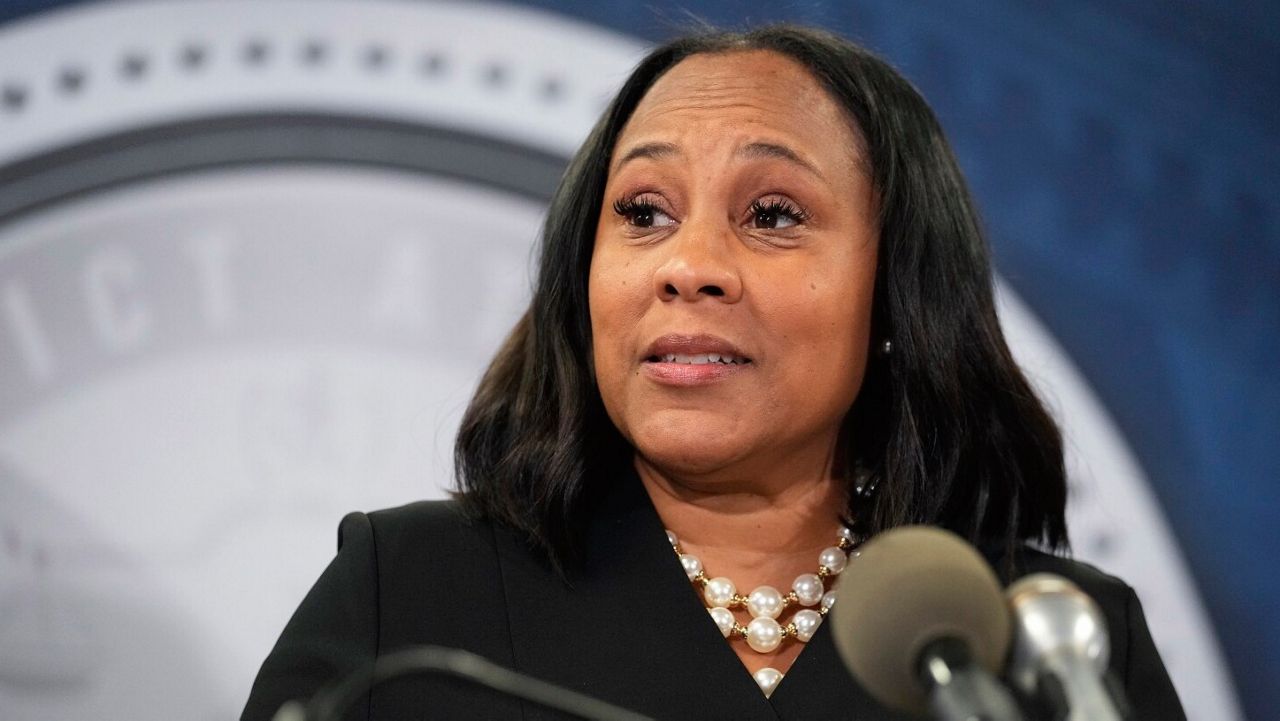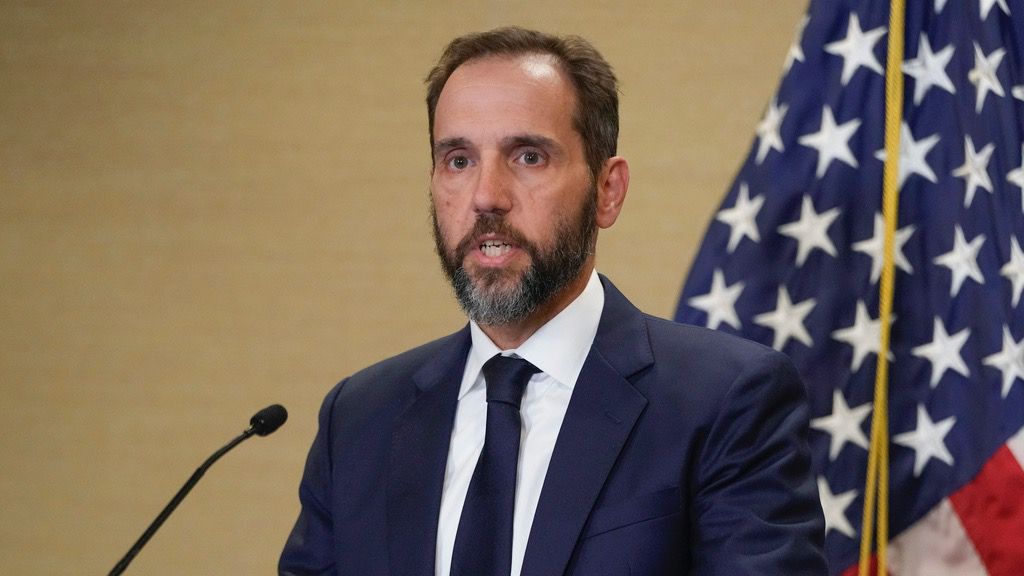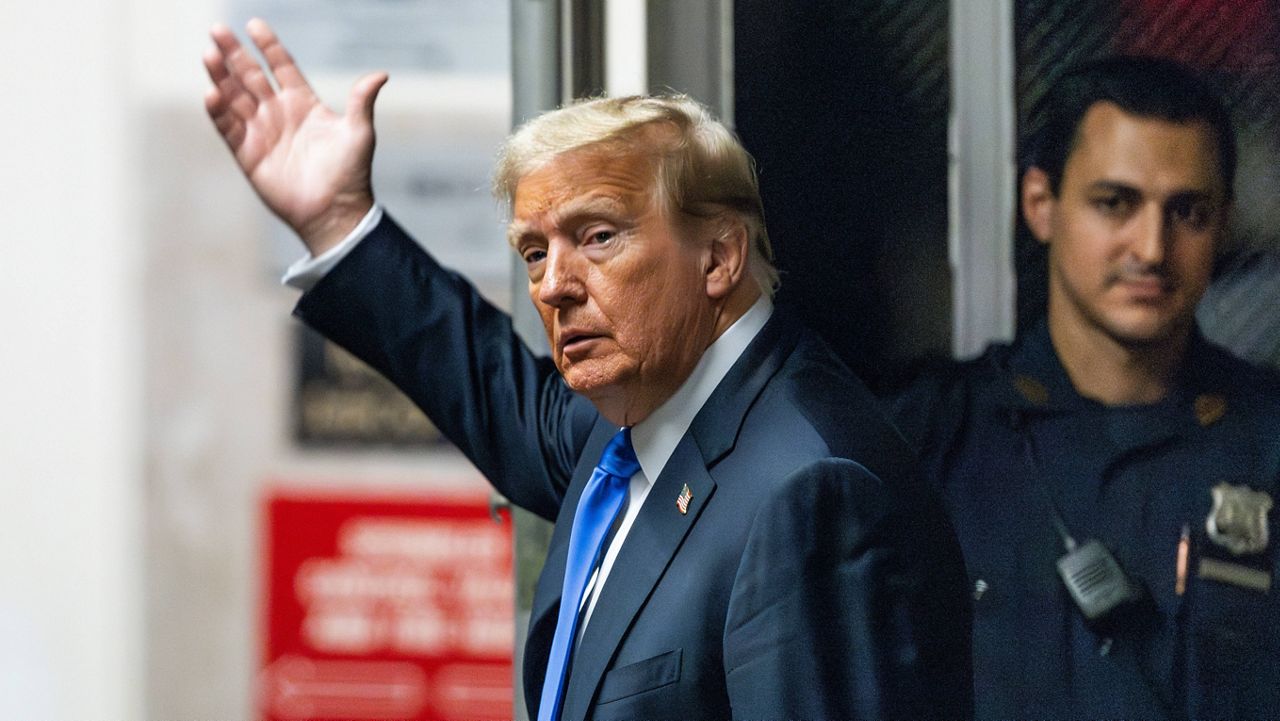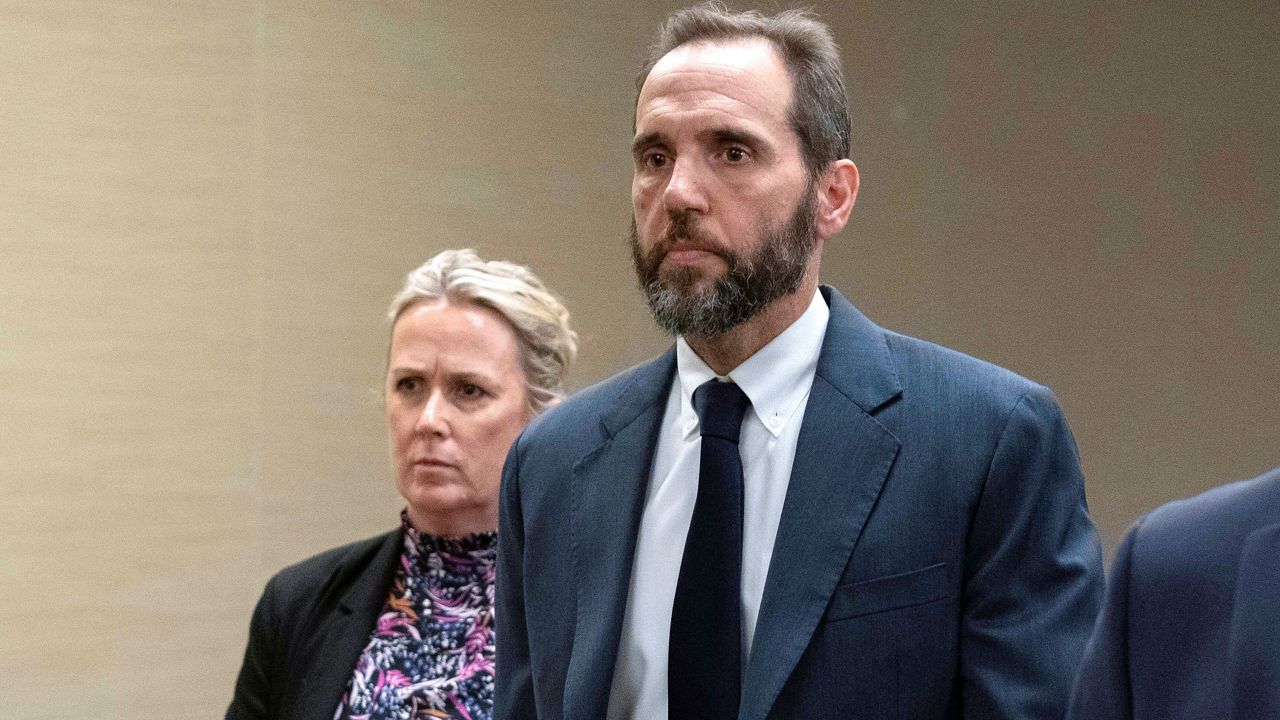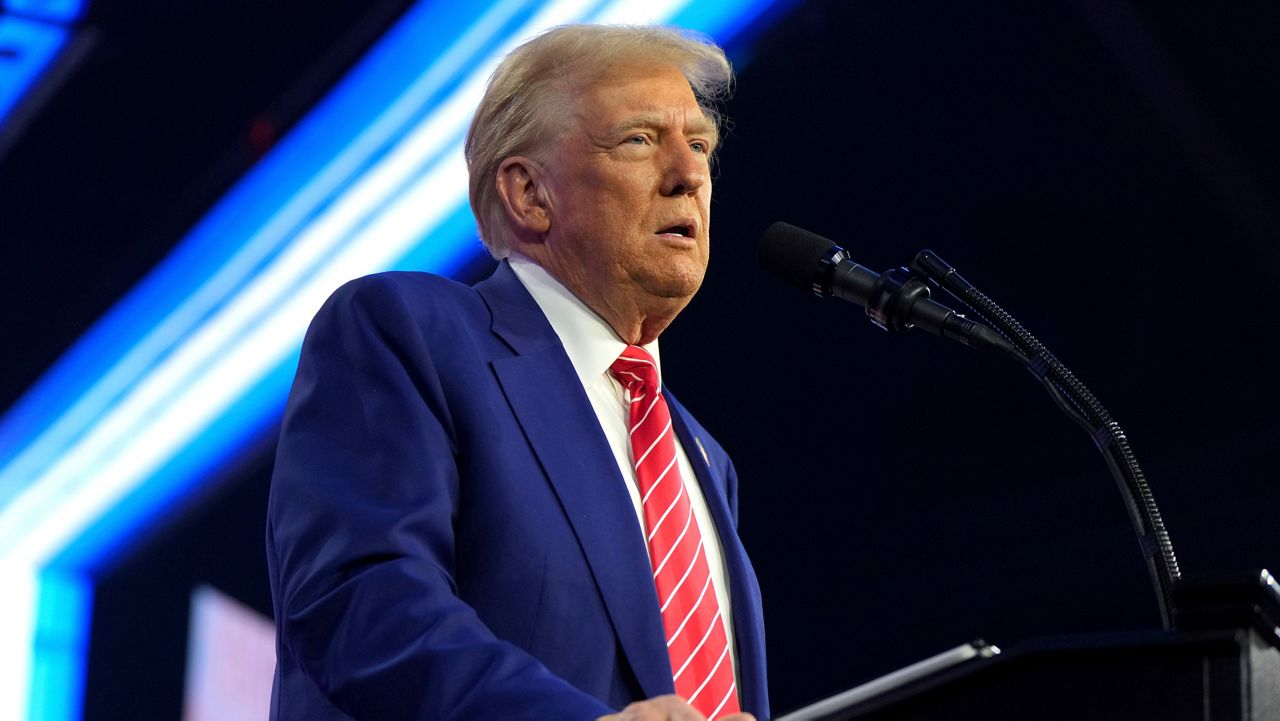The Georgia district attorney who charged former President Donald Trump over his efforts to overturn the state's 2020 election said Tuesday that she expects his trial will be underway through Election Day next year and could possibly stretch past the inauguration in 2025.
What You Need To Know
- The Georgia district attorney who charged former President Donald Trump over his efforts to overturn the state’s 2020 election says she expects his trial will be underway over Election Day next year and could possibly stretch past the inauguration in 2025
- Fulton County District Attorney Fani Willis' remarks came shortly after she asked a judge for an emergency protective order to prevent evidence in the case from being leaked
- A day earlier, news outlets reported on prosecutors’ video interviews with four co-defendants who ended up pleading guilty in the case
- Trump was indicted along with 18 others in Fulton County in August on charges they participated in a wide-ranging conspiracy to keep the Republican incumbent in power after he lost to Democrat Joe Biden. Trump and the remaining defendants — including former New York Mayor Rudy Giuliani and former White House chief of staff Mark Meadows — have all pleaded not guilty
Fulton County District Attorney Fani Willis made the comments at an event sponsored by The Washington Post. Her remarks came shortly after Willis asked a judge for an emergency protective order to prevent evidence in the case from being leaked, just a day after news outlets reported on prosecutors' video interviews with four co-defendants who have pleaded guilty in the case.
Trump was indicted along with 18 others in Fulton County in August on charges they participated in a wide-ranging conspiracy to keep the Republican incumbent in power after he lost to Democrat Joe Biden. Trump and the remaining defendants — including former New York Mayor Rudy Giuliani and former White House chief of staff Mark Meadows — have all pleaded not guilty.
"I believe in that case there will be a trial. I believe the trial will take many months. And I don’t expect that we will conclude until the winter or the very early part of 2025,” Willis told the newspaper at the The Washington Post’s Global Women's Summit.
Trump is the early front-runner for the 2024 Republican nominee for president. The timing suggested by Willis would make the Georgia prosecution the last of his four criminal cases to go to trial. Ultimately, it will be up to Fulton County Superior Court Judge Scott McAfee to set the trial date.
“I don’t, when making decisions about cases to bring, consider any election cycle or an election season. That does not go into the calculus. What goes into the calculus is: This is the law. These are the facts. And the facts show you violated the law. Then charges are brought,” Willis said.
Steve Sadow, Trump's lead attorney in the Georgia case, declined to comment on Willis' remarks.
Willis' team on Tuesday filed an emergency request asking McAfee to issue a protective order to prevent any leaks of evidence, known as discovery, that the prosecution shares with the defense ahead of trial. McAfee has set a hearing on the motion for Wednesday afternoon.
The request came a day after the Post reported the details of video interviews with four people who have already pleaded guilty in the case — attorneys Sidney Powell, Kenneth Chesebro and Jenna Ellis, and bail bondsman and Trump supporter Scott Hall. ABC News first published details and clips of the interviews with Powell and Ellis.
Prosecutors, who had previously requested a protective order to prevent the release of discovery in September, said the release of the recordings “is clearly intended to intimidate witnesses in this case.”
Former Georgia Republican Party chair David Shafer, joined by Trump and four other defendants, objected to prosecutors' request, saying prosecutors had failed to show how it would “allegedly serve the purpose of protecting witnesses from alleged harm.” If the judge plans to impose a protective order, it should be limited to evidence considered “Sensitive Materials,” and defense attorneys should be able to contest that designation, Shafer's attorneys wrote in a filing Tuesday.
The recorded statements had been shared with all remaining defense attorneys in the case. Going forward, prosecutors wrote, defendants and their lawyers will not receive copies of such recordings but will be able to watch them and take notes at the district attorney's office.
Ellis told prosecutors that Dan Scavino, then Trump's deputy chief of staff, told her in December 2020 that “the boss" didn't plan to leave the White House after she expressed sorrow that none of the legal challenges to the election seemed to be panning out, according to news reports.
Chesebro told prosecutors about a previously unreported meeting at the White House during which he briefed the then-president on election challenges in Arizona and summarized his advice on a plan to assemble Republican slates of electors in several swing states that Biden had won, the Post reported.
Asked by prosecutors why Trump kept asking her for legal advice, Powell said, “Because we were the only ones willing to support his effort to sustain the White House. I mean, everybody else was telling him to pack up and go.”
Trump attorney Sadow dismissed the relevance of the recorded interviews and called for the case to be dismissed.
“Any purported private conversation is absolutely meaningless,” he said in an emailed statement. “The only salient and telling fact is that President Trump left the White House on January 20, 2021 and returned to Mar-a-Lago in Palm Beach, Florida.”




